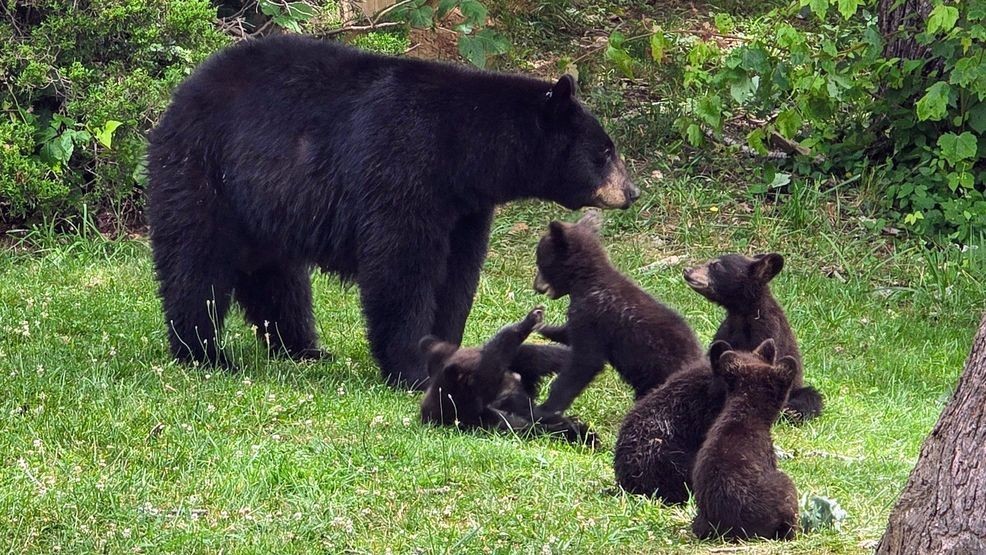BUNCOMBE COUNTY, N.C. (WLOS) — As the season gets ready to change, so does a black bear’s interaction with livestock.
The North Carolina Wildlife Resources Commission has shared precautionary measures that you should take during this time of year to protect your livestock from bears.
The commission has recently received an increase in calls about bears going after livestock, which has led them to provide guidance to livestock owners.
NC WILDLIFE OFFICIALS URGE BEAR SAFETY AFTER MAN WAS INJURED DURING AN ENCOUNTER
According to the commission, black bears typically consume a plant-based diet and are attracted to livestock feed like grains and corn. As an omnivore and an opportunist, however, the black bear will eat anything it has easy access to, including livestock.
They will feed on eggs, small livestock like chickens and rabbits, and larger animals like goats and ponies.
Ashley Hobbs, special projects biologist with the N.C. Wildlife Resources Commission, said it is very common during the late summer months to see more activity with bears around livestock.
“It boils down to two things: Bears are opportunistic, and unsecured livestock like especially chickens and goats are the big two around Buncombe County,” she said.
AFTER DOGS SURVIVE BEAR FIGHT IN FENCED YARD, EXPERT OFFERS PET OWNERS SAFETY ADVICE
She said livestock can make for an easy meal during a time when not much is available to them. For example, three chickens total about 4,500 calories, which is almost two days’ worth of nutrition for bears.
To protect livestock, Hobbs said that there are “BearWise” practices to follow. “BearWise” is a national program dedicated to helping people live responsibly with bears. The program “shares ways to prevent conflicts with black bears, provides resources to resolve problems with black bears, and encourages community initiatives to keep black bears wild,” according to the N.C. Wildlife Resources Commission’s website.
Some recommendations include:
- Always store livestock feed and pet food away
- Place livestock pens and bee hives at least 50 yards away from wooded areas
- Consider bringing livestock, particularly smaller animals, inside at night
- Remove carcasses
- Install electric fencing
- Own a guard animal
BEARWISE BASICS: HOW TO COEXIST WITH THE GROWING BLACK BEAR POPULATION IN WNC
“If you’ve got bunnies in the backyard, chickens, goats, mini horses, alpacas, any sort of livestock, electric fencing is going to be your best bet,” Hobbs said.
Keep in mind that electric fences may shock bears, but they do not actually harm them.
“Having the things like electric fencing in place keeps our livestock safe which we have a duty to keep them safe, as well as our pets and our kids and our neighbors and the bears themselves,” Hobbs added.
HURRICANE HELENE LEFT REGIONAL BEAR POPULATION LARGELY UNFAZED, EXPERT SAYS
She advises not waiting until you see a black bear to put in protective measures.
“It really comes down to people not taking a proactive approach,” she said. “Sometimes, we think we don’t see bears around the chicken coop in the backyard very often, so we think that what we’re doing is fine, but ultimately, it just takes that one curious bear that utilizes that opportunity, and you could lose your whole flock.”
Click here to learn more about how to be BearWise and protect your livestock.
